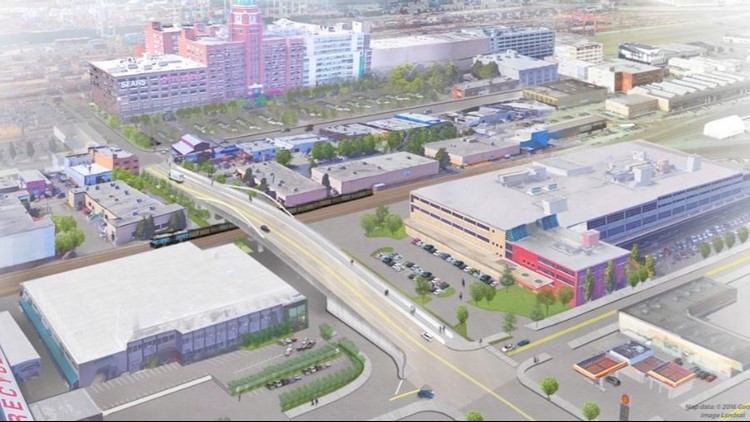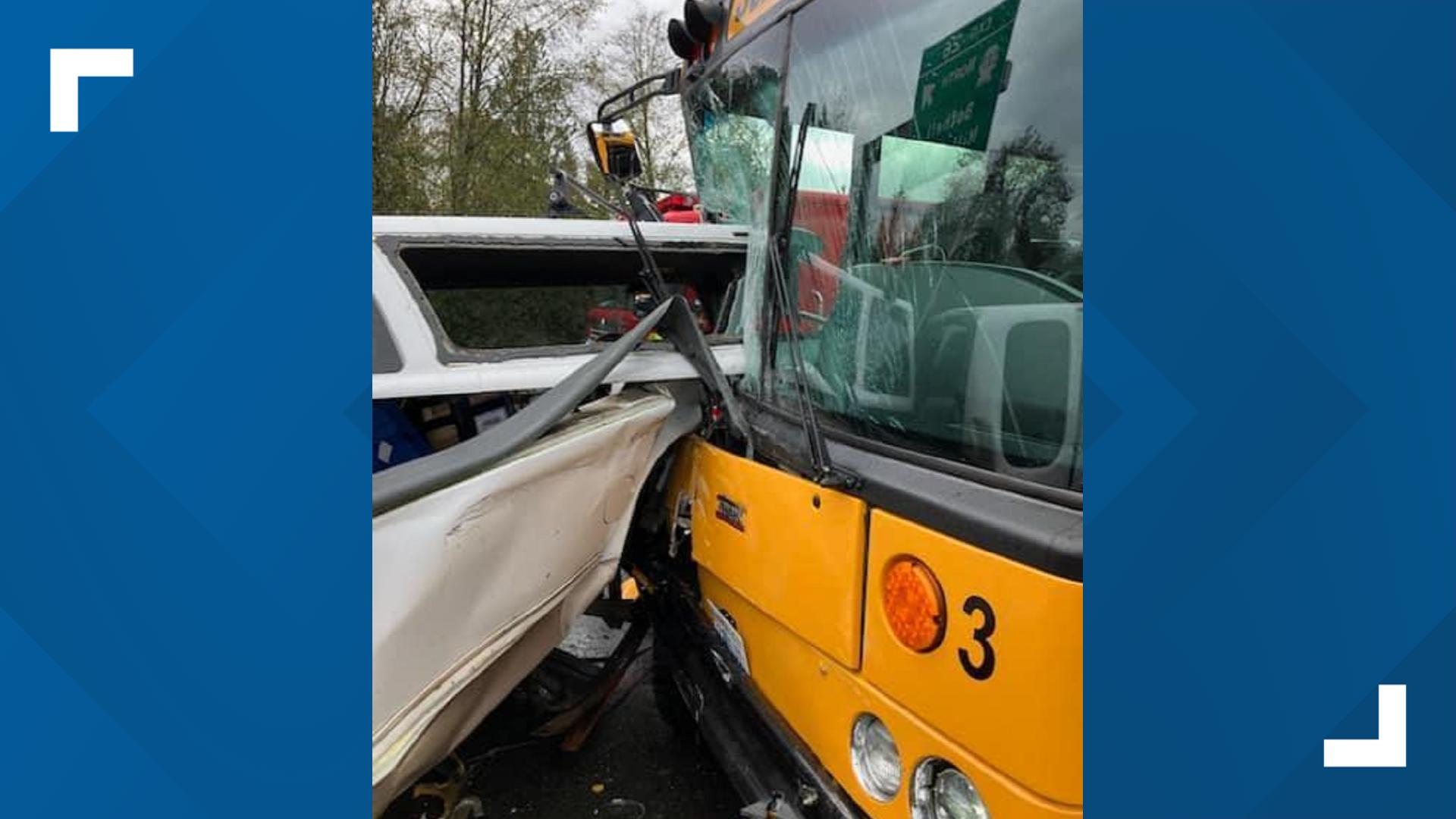The long awaited, much discussed, Lander Street overpass project is finally happening.
Work officially started Tuesday on the project in Seattle's SODO neighborhood. The project involves building an elevated road over the railroad tracks on S. Lander Street to help relieve traffic congestion.
Lander will be closed to traffic from 1st Avenue S. to 3rd Avenue S. as crews build the new overpass, which is scheduled to be completed in early 2020. More than 13,000 drivers use the route each day.
Drivers can use S. Holgate or S. Spokane streets as alternate routes. The Seattle Department of Transportation says pedestrian and bicycle access will be maintained, along with access to businesses along Lander Street.
Traffic signal timing and roadway striping have been adjusted to help keep traffic moving at 1st Avenue and Holgate, and Horton Avenue S. and Hanford Avenue S.
SDOT has also added a temporary signal at 4th Avenue and S. Forest Street.
Lander Street is an essential east-west route to SODO along with being an active train crossing. SDOT says the road is currently closed over 100 times a day and causes traffic delays and is a potential safety risk.
The total cost of the project is estimated at $100 million with contributions from the City of Seattle and other project partners including Washington state, the Port of Seattle, the BNSF Railway, and $45 million from the U.S. Department of Transportation.
Seattle Mayor Jenny Durkan, Senator Maria Cantwell, and Port Commissioner Courtney Gregoire all attended the Tuesday's groundbreaking, with Durkan calling it a “great day."
It is a day long in the making, and for a straight road, had lots of twists and turns to get here. In 2006, voters approved funding for the project through the “Bridging the Gap” levy.
However, then-Mayor Greg Nickels and the Seattle Council agreed to reallocate the allotted money to fix the Mercer Mess. The roadway became a central focus of debate in the SODO Arena discussions, with investor Chris Hansen later pledging to fill a financing gap in order to complete the project. Hansen's offer was rejected, and then-SDOT Director Scott Kubly called it a primary project after voters approved the Move Seattle levy in 2015.
The new span effectively dead ends Occidental Avenue South at Lander, about three blocks south of the proposed SODO Arena site. The Port of Seattle had argued against the Arena proposal, claiming it would create a dead end on Occidental and impact Port-related traffic.



